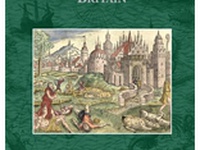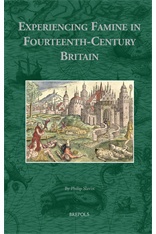RHN 146/2019 | Publication
Philip Slavin, Experiencing Famine in Fourteenth-Century Britain (Environmental Histories of the North Atlantic World EHNAW; 4), Turnhout: Brepols 2019.
The book is concerned with arguably the single harshest subsistence crisis in Europe in the last two millennia: the Great Famine of 1315–17.
The agrarian crisis of 1315–17, known to history as the Great Famine, was one of the most devastating environmental crises to hit Europe within the last two millennia. The almost biblical flooding of 1314–16 brought about a series of crop failures, triggering a widespread agricultural crisis that unfolded into a catastrophic famine, which hit both human and animal populations with unprecedented force. The impact of this crisis, and the major long-term environmental consequences that followed, thus mark a truly watershed moment in European history.
This volume provides an in-depth study of the Great Famine as it affected the British Isles, but through this focused approach, it also offers new insights into the late-medieval North European economy and society at a time of political, socio-economic, and biological shocks and crises. Close analysis of contemporary archival sources reveals that the Great Famine was a highly complex phenomenon made by both Nature and man; and this is reflected in a highly interdisciplinary approach that studies climate, economy, demography, and health, as well as the way in which human behaviour further exacerbated the impact of famine.
Source: Brepols Publishers

